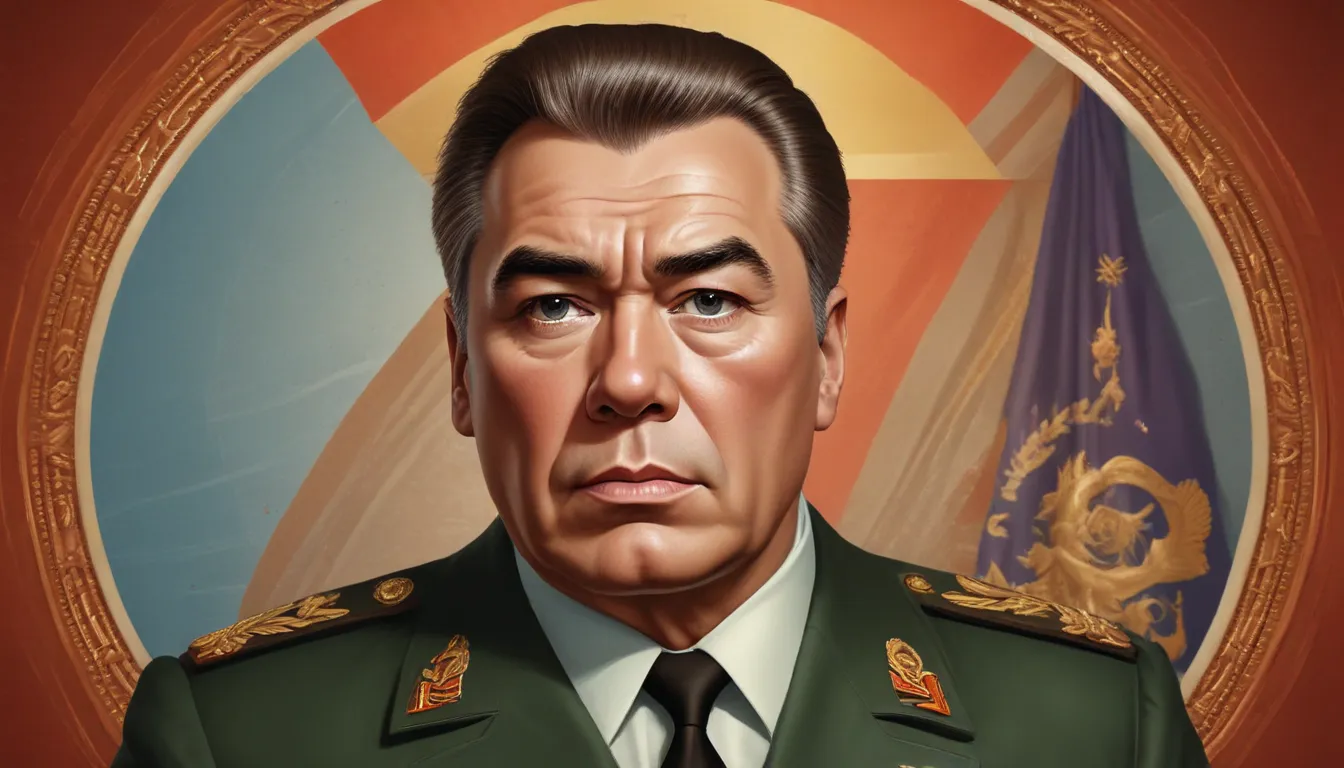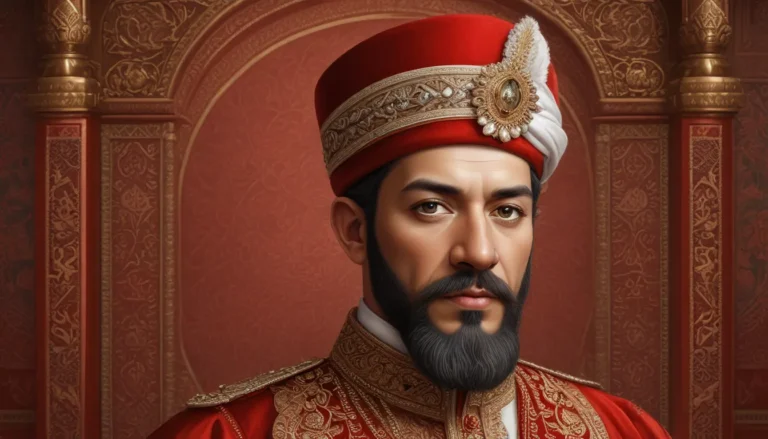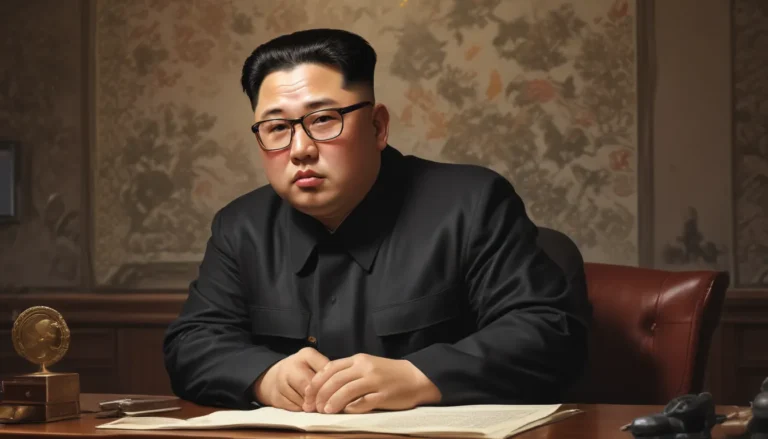The images in our articles may not match the content exactly. They are used to grab your attention, not to show the exact details in the text. The images complement the text but do not replace it.
Leonid Brezhnev, a name synonymous with Soviet history, left an indelible mark on the nation and the world stage. As the General Secretary of the Communist Party of the Soviet Union from 1964 to 1982, his leadership during the Cold War era was characterized by stability, economic growth, and military advancements. Despite being less recognized than other world leaders of his time, Brezhnev’s legacy is filled with extraordinary facts that highlight his influence and contributions. Let’s dive into 13 remarkable facts about Leonid Brezhnev that illuminate his impact on Soviet society and global politics.
Key Takeaways:
- Leonid Brezhnev, the longest-serving Soviet leader, introduced the controversial Brezhnev Doctrine, oversaw advancements in space exploration, and navigated the complexities of the Cold War arms race.
- His era, known as the “Era of Stagnation,” saw both achievements in Olympic success and controversies like the invasion of Afghanistan.
The Longest-Serving Soviet Leader
Leonid Brezhnev’s tenure as the General Secretary of the Communist Party of the Soviet Union spanned an impressive 18 years, making him the longest-serving Soviet leader in history. His cautious leadership style influenced Soviet politics and global affairs significantly during his time in power.
Brezhnev’s Doctrine
One of Brezhnev’s major contributions to Soviet foreign policy was the development of the Brezhnev Doctrine. This principle granted the Soviet Union the right to intervene in other socialist countries militarily to uphold communism’s stability. The doctrine played a pivotal role in events like the Soviet invasion of Czechoslovakia in 1968, showcasing Brezhnev’s assertiveness on the global stage.
Era of Stagnation
Brezhnev’s rule is often referred to as the “Era of Stagnation,” characterized by slow economic growth and limited political reforms. While the Soviet Union experienced stability under his leadership, issues like corruption, inefficiency, and a stagnant economy posed challenges to the nation’s progress.
Space Exploration
Under Brezhnev’s guidance, the Soviet Union achieved significant milestones in space exploration. Notably, the historic Soyuz-Apollo mission in 1975 marked the first joint space mission between the Soviet Union and the United States, showcasing Brezhnev’s commitment to pushing boundaries in scientific endeavors.
Olympic Success
Brezhnev’s leadership coincided with unprecedented success for the Soviet Union at the Olympic Games. The nation dominated various sporting events, particularly in disciplines like gymnastics, weightlifting, and athletics, cementing its reputation as a global athletic powerhouse under Brezhnev’s watch.
Afghanistan Invasion
In a controversial move in 1979, the Soviet Union, under Brezhnev’s direction, launched a military intervention in Afghanistan. This decision sparked a prolonged and costly conflict, facing fierce resistance from Afghan guerrilla fighters and drawing international scrutiny to Brezhnev’s actions.
Friendship with the United States
Despite the tensions of the Cold War, Brezhnev actively pursued a relationship with the United States. Engaging in dialogue with U.S. President Richard Nixon, he facilitated the signing of several arms control agreements, like the Strategic Arms Limitation Talks (SALT), signaling an effort to mitigate hostilities between the superpowers.
Personality Cult
Brezhnev’s leadership was accompanied by a massive personality cult, where his image adorned posters, statues, and propaganda materials across the Soviet Union. This cult of personality aimed to elevate Brezhnev as an unerring and revered leader in the eyes of the population.
Ethical Code for Soviet Citizens
In 1972, Brezhnev introduced an Ethical Code for Soviet Citizens, emphasizing moral values and principles. This initiative aimed to influence the behavior and mindset of Soviet citizens, promoting a disciplined and principled society aligned with communist ideals.
Agrarian Reforms
As part of his agricultural policies, Brezhnev implemented extensive reforms to address food production challenges in the Soviet Union. These reforms sought to modernize the nation’s agricultural sector and combat issues of food shortage, reflecting Brezhnev’s commitment to improving living standards for the population.
Personality and Leadership Style
Known for his conservative approach and cautious decision-making, Brezhnev prioritized stability and continuity during his leadership. This style of governance contributed to a period of predictability and relative calm within the Soviet Union, albeit amidst criticisms of stagnation and lack of reform.
Legacy and Controversy
Brezhnev’s legacy remains a subject of debate, marked by a mix of achievements and controversies. While some commend his role in maintaining stability and enhancing Soviet influence, others condemn his governance for its economic stagnation and suppression of political freedoms, underscoring the complexities of his rule.
In Conclusion
Leonid Brezhnev’s impact on Soviet history and global politics is profound and multifaceted. As a towering figure in Soviet leadership, his legacy embodies a blend of achievements and challenges that shaped an era of Cold War complexities and ideological tensions. From his enduring influence on Soviet foreign policy to his controversial military interventions, Brezhnev’s tenure as the General Secretary left an enduring mark on the nation and the international community.
FAQs
-
Who was Leonid Brezhnev?
Leonid Brezhnev was a prominent Soviet politician and the General Secretary of the Communist Party of the Soviet Union from 1964 to 1982, leading the nation during the height of the Cold War. -
What were some of Brezhnev’s significant accomplishments during his tenure?
Brezhnev focused on strengthening the Soviet Union’s military capabilities through an arms buildup and pursued detente policies to ease Cold War tensions with the United States. -
What was the Brezhnev Doctrine?
The Brezhnev Doctrine asserted the Soviet Union’s right to intervene in any socialist country to protect communism, exemplified by the 1968 invasion of Czechoslovakia. -
How did Brezhnev’s rule impact the Soviet economy?
Brezhnev’s economic policies aimed at maintaining stability, but his emphasis on heavy industry and centralized planning led to stagnation and inefficiency in the economy. -
What was Brezhnev’s approach to domestic dissent?
Brezhnev adopted a strict stance on dissent, curtailing political freedoms and cracking down on dissidents, escalating censorship and repression in Soviet society. -
How did Brezhnev’s leadership shape Soviet foreign policy?
Brezhnev’s leadership balanced strategic parity with the U.S. and sought cooperation through arms control agreements like SALT, contributing to a period of stability amid global tensions. -
How long did Brezhnev serve as the General Secretary of the Communist Party?
Brezhnev held the position of General Secretary for over 18 years, from 1964 until his passing in 1982, embodying one of the longest-serving leaders in Soviet history. -
What was the significance of Brezhnev’s leadership during the Cold War?
Brezhnev’s leadership during the Cold War era played a crucial role in shaping global dynamics, fostering detente efforts and military advancements that influenced the international landscape.
In exploring the life and legacy of Leonid Brezhnev, we encounter a figure of complexity and contradiction, representing the complexities of Soviet governance and global power dynamics during a transformative period in history. His contributions and controversies continue to fuel discussions and reflections on the impact of his leadership on the Soviet Union and the world.






